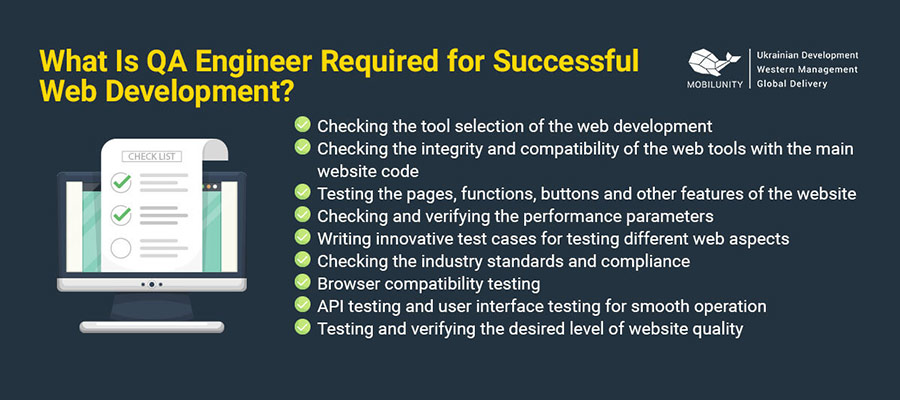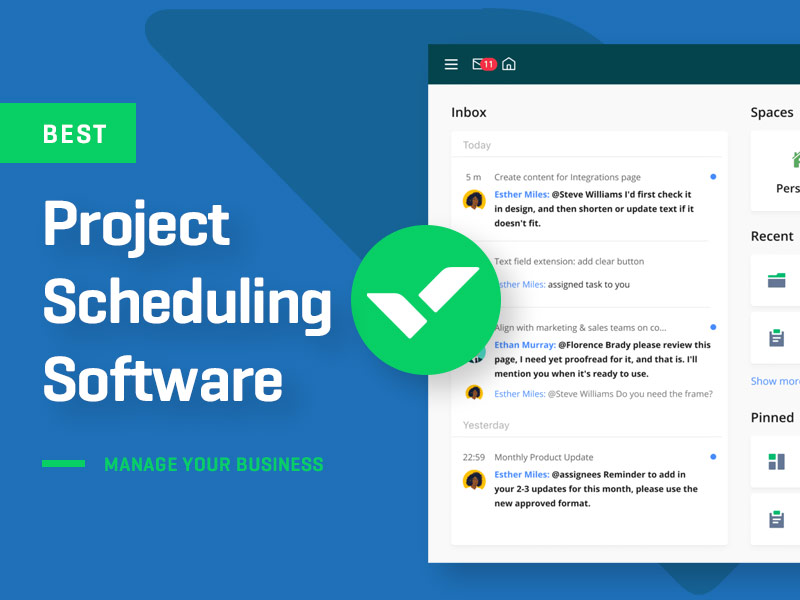A pandemic in 2020 has demonstrated how fast businesses can adjust to a new reality in which technology plays a critical role. The widespread use of online learning, food delivery, online shopping, diverse virtual tours, and other services is becoming the standard practice.
For software architecture consulting and testing to stay up with society’s trends and demands, they are continually enhanced and complemented with innovations. The software testing services market will expand fast, and 2021 will be a year of software quality control advancements.
So, what is the point of software testing? In reality, nearly any software provider needs testers. Software testing is essential to your company’s security and the development of a reliable and high-quality product. In the article, we’ll talk about how testing may help businesses avoid costly mistakes during the early phases of software development.
A Brief Overview of Software Testing
Testing is the process of ensuring that the software’s outcomes adhere to the defined criteria and tasks. Software testing covers the whole software development cycle, including data gathering and analysis, test design and execution, report writing, and product verification. QA (Quality Assurance) and QC (Quality Control) are two terms used to describe software testing. QA professionals test the product at every level of development to guarantee that the final software is of high quality. QC professionals, on the other hand, examine the product’s code and design for excellence.
The Significance of Software Testing for Businesses
Not without reason, testing has become an integral part of the software development process, influencing the product’s reliability, quality, and value. Users and businesses alike benefit from the software solutions that technology companies develop and deploy.
A minor bug in the program can cause at least discomfort in using the application, and in the worst-case scenario, it can result in money loss or data leaking. Faulty software can negatively affect the reputation of your business, so it is better to hire a software consultant to be on the safe side.
A local IT consultant is a professional whose responsibilities include increasing corporate efficiency, cost management, software development control, and data security. To achieve maximum performance, the consultant would supervise software architecture specialists and testers.
Currently, the software market is very competitive, with many companies vying for customers’ attention. Apps that are high-quality and easy-to-use are essential to attracting and retaining users’ interest. Testing assures the quality of your product, as well as compliance with software specifications and user expectations. Testers also check that your software is compatible with a wide range of devices and operating systems. Owing to the outstanding QA and QC, the company can develop a decent product that will remain top of the market.
Software testing also guarantees that your product is secure. Users today are more selective in terms of which services or applications they are prepared to entrust their personal information. A safety check allows you to identify vulnerabilities in the code, fix them, which will prevent data leakage. And, given the stringent requirements for personal data protection, it is preferable to secure with the assistance of specialists.
The necessity of software testing is also to ensure that your client’s demands are met to the greatest extent possible. Software developers, in fact, frequently concentrate only on technical responsibilities. And, as a result, testers may more properly analyze the user experience and contribute to the development of a user-friendly program. Testers gather and evaluate the application’s requirements, identify all potential problems in the code, and forward them to software engineering professionals for a fix.
Software Testing as a Money-Saving Opportunity
Perhaps it is not that clear how software testing can save you a lot of money. After all, you’ll need to employ a team of QA and QC experts first. So, what are the financial benefits in this case? This approach to work will save you a significant amount of money in the long run, as it is much cheaper to fix bugs in the early stages of software development, especially if you partner with a reputable company like QualityLogic.com in order to thoroughly test a platforms for bugs or inefficiencies at varying stages of completion.
Consider the following analogy: you build a house, and it turns out that the foundation was laid improperly. Such a structure is dangerous to put into operation, so you can try to fix it at best, and at worst, you’ll have to demolish and rebuild it. Similarly, software development, divided into stages, and it is frequently impossible to go backward from one step to another. The specialists such as testers are needed to avoid bugs in software. These experts will work with you throughout the creation of your product, ensuring that you do not have to redo everything, even the “foundation.”
Software testing is unquestionably cost-effective since bugs discovered during the testing phase are several times less expensive than defects found later in the development cycle. Thus, the sooner you begin the testing process, the faster you will find issues and the cheaper it will be to fix them. Furthermore, if you launch a product that has not been well tested and is flawed, you risk alienating potential customers. And losing clients is equal to losing money.
Helpful Hints and Tips for Testing
1. Take a comprehensive approach to testing.
A comprehensive approach is that the list of required tests is formed based on the characteristics of specific software. It implies that you can use several types of testing simultaneously to create a top-quality product. It’s also important not to forget anything, so create a list of what needs checking thoroughly, from cross browser testing to checking the functionality of the product works, you don’t want to overlook anything!
2. Use the test automation.
Test automation reduces the number of manual checks, which significantly reduces testing time.
3. Improve software testing using artificial intelligence.
AI is now a promising technology that is being applied in various fields, including QA. Artificial intelligence and machine learning are one of many test automation tools that can help you increase the amount of test coverage while reducing human interaction.
4. Use Agile development methodology.
This methodology is distinctive in that the workflow consists of relatively short cycles. This strategy is very convenient for testers, as it is possible to find bugs in the software at each stage of its development.
5. Be consistent in testing.
First, we recommend starting with positive scenarios and checking the basic actions of users, and then moving to the negative ones.
6. Analyze performance.
In products that require critical response time, performance needs to be carefully analyzed. To get a better understanding of the product performance, we recommend reviewing the whole project.
7. Test the product for vulnerabilities.
It is necessary to ensure the security of your software.
8. Use regression testing.
Regression testing ensures that code modifications do not impact current functionality.
Conclusion
Today, it’s impossible to imagine a person who does not use the software. The need for IT consulting and software testing professionals increases every year, as is competition in the technology industry. Last year, we witnessed how critical it is for organizations to rely on secure, efficient, and sophisticated software solutions. That is why many companies are now striving to create high-quality products. You may assure the proper operation of programs and services for your consumers while also gaining financial benefits for your business by hiring testing professionals.








